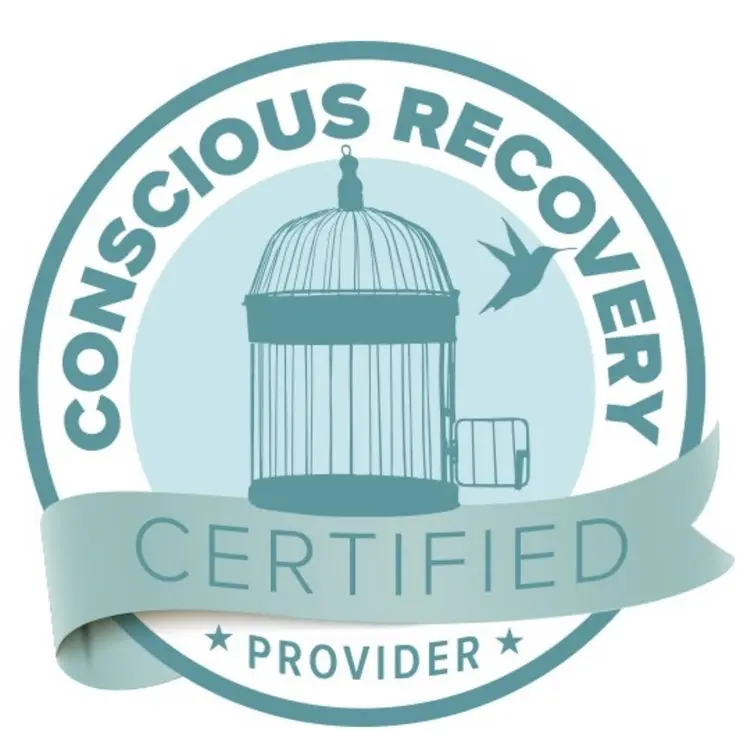When you’re seeking help for mental health concerns, navigating the various types of mental health professionals can feel overwhelming. At Monima Wellness Center in San Diego, we understand that knowing the difference between a psychiatrist, a psychologist, and a therapist is crucial to finding the proper support for your unique needs.
This comprehensive guide will help you understand the distinctions between these providers, their education and training, their services, and how to determine which professional is right for your mental health journey.
What Are the Main Differences Between a Psychiatrist, Psychologist, and Therapist?
| Provider | Education | Can Prescribe Medication | Focus Areas | Common Services |
| Psychiatrist | Medical Doctor (MD/DO) with specialized training in mental health | Yes | Medical/biological aspects of mental health | Medication management, diagnosis, treatment of complex conditions |
| Psychologist | Doctoral degree (PhD/PsyD) in psychology | Generally no (with some exceptions in specific states) | Psychological assessment, therapy, research | Neuropsychological testing, therapy, diagnostic assessments |
| Therapist | Master’s degree or higher in counseling, social work, or related field | No | Counseling, emotional support, coping strategies | Individual/group therapy, specific therapeutic approaches |
What is a Psychiatrist and What Do They Do?

A psychiatrist is a medical doctor (MD or DO) who specializes in mental health, including substance use disorders. Their medical education gives them a comprehensive understanding of the relationship between physical and psychological health.
1. What Education and Training Do Psychiatrists Have?
Psychiatrists undergo extensive training, including:
- Four years of medical school after undergraduate education
- Four years of residency training in psychiatry
- Many pursue additional fellowship training in specialized areas
- Board certification through the American Board of Psychiatry and Neurology
2. What Services Do Psychiatrists Provide?
As medical doctors, psychiatrists are uniquely qualified to assess both the mental and physical aspects of psychological problems. Their services typically include:
- Conducting comprehensive psychiatric evaluations: Assessing symptoms, medical history, family history, and current life situations to make accurate diagnoses
- Prescribing and managing medications: Determining appropriate psychiatric medications, monitoring effectiveness and side effects
- Providing medical treatments: Administering treatments such as transcranial magnetic stimulation (TMS) or electroconvulsive therapy (ECT) when appropriate
- Differentiating between physical and mental health conditions: Identifying when symptoms may be caused by underlying medical conditions versus psychiatric disorders
- Treating complex and severe mental health conditions: Specializing in conditions like schizophrenia, bipolar disorder, treatment-resistant depression, and other disorders requiring medical management
At Monima Wellness, our psychiatrists specialize in women’s mental health and work closely with our therapeutic team to ensure integrated care that addresses all aspects of well-being.
What is a Psychologist, and How Are They Different from Psychiatrists?

Psychologists are mental health professionals with doctoral degrees (PhD or PsyD) in psychology, focused on evaluating and treating mental and emotional disorders primarily through psychological assessment and therapy.
1. What Education and Training Do Psychologists Have?
Psychologists’ training typically includes:
- Undergraduate degree in psychology or related field
- 5-7 years of graduate education leading to a doctoral degree
- 1-2 years of supervised clinical internship
- Licensure requiring passing national and state examinations
- Many pursue postdoctoral specialization in specific areas
2. What Services Do Psychologists Provide?
Psychologists offer a range of services focused on assessment, diagnosis, and non-medication treatments:
- Psychological testing and evaluation: Administering and interpreting specialized tests to assess cognitive abilities, personality, and emotional functioning
- Neuropsychological testing: Evaluating cognitive functions, brain-behavior relationships, and the impact of neurological conditions
- Providing therapy: Delivering evidence-based therapeutic approaches such as cognitive-behavioral therapy (CBT), dialectical behavior therapy (DBT), and other specialized interventions
- Diagnosing mental health conditions: Using clinical interviews, observation, and psychological assessments to diagnose disorders.
- Conducting research: Many psychologists are also involved in research to advance understanding of mental health conditions and treatments.
At Monima Wellness, our CEO, Max, is a psychologist who leads our team in providing comprehensive, evidence-based care. Our psychological services form a crucial component of our holistic approach to women’s mental health treatment.
What is Neuropsychological Testing and Why is it Important?

One of the most valuable services psychologists provide is neuropsychological testing, which plays a central role in our treatment approach at Monima Wellness.
1. How Does Neuropsychological Testing Work?
Neuropsychological testing is a comprehensive assessment of cognitive patterns and brain functioning. These specialized evaluations help identify how different areas and systems of the brain are working and how they affect thinking, behavior, and emotional regulation.
2. Why is Neuropsychological Testing Essential for Effective Treatment?
At Monima Wellness, every woman who enrolls in our outpatient programs begins her recovery journey with a neuropsychological evaluation. This critical step ensures that treatment is personalized and targeted from the very start. Our approach to neuropsychological testing includes:
- Comprehensive assessment methods that evaluate cognitive and behavioral functions
- Individualized testing protocols based on presenting concerns
- Detailed analysis of cognitive strengths and potential vulnerabilities
- Treatment planning that addresses specific cognitive patterns identified through testing
This evidence-based approach allows our team to develop highly personalized treatment plans that go beyond symptom management to address the underlying cognitive patterns that may contribute to mental health challenges.
3. When Should You Consider Getting Neuropsychological Testing?
Consider seeking neuropsychological testing if you’re experiencing:
- Mental health conditions that haven’t responded to previous treatments or medications
- Increasing symptoms of anxiety, depression, or other mental health disorders
- Difficulties with attention, concentration, or memory
- Challenges with decision-making or judgment
- Unexplained changes in personality or behavior
What Is A Therapist & How Do They Differ from Psychologists and Psychiatrists?

The term “therapist” is broader and can encompass various mental health professionals who provide counseling services, including some psychologists. However, many therapists hold master’s-level degrees in counseling, social work, marriage and family therapy, or related areas.
1. What Education and Training Do Therapists Have?
Therapists’ backgrounds may include:
- Master’s degree in counseling, social work, marriage and family therapy, or related field
- Supervised clinical experience (typically 2,000-4,000 hours)
- State licensure (LCSW, LMFT, LPC, etc.)
- Continuing education in specialized therapeutic approaches
2. What Services Do Therapists Provide?
Therapists focus primarily on providing talk therapy and emotional support:
- Individual and group therapy: Creating safe spaces for exploring emotions, thoughts, and behaviors
- Specialized therapeutic approaches: Utilizing methods like CBT, DBT, EMDR, and other evidence-based interventions
- Relationship counseling: Helping improve communication and resolve conflicts in relationships
- Supportive counseling: Providing emotional support and practical guidance during difficult life transitions
- Skill development: Teaching coping strategies, emotional regulation techniques, and other practical skills
At Monima Wellness, our therapists work closely with our psychiatrists and psychologists to deliver coordinated care that addresses all mental health and recovery aspects.
How Does Monima Wellness Integrate Different Mental Health Professionals?

At Monima Wellness Center, we recognize that recovery looks different for everyone. Our comprehensive approach to women’s mental health care brings together the expertise of psychiatrists, psychologists, and therapists to provide genuinely integrated treatment.
What Makes Monima’s Two-Fold Approach to Mental Health Care Effective?
Our comprehensive approach addresses the multifaceted nature of mental health through:
- Evidence-based practices: Including medication management by psychiatrists, psychological assessment and therapy by psychologists, and specialized therapeutic interventions by our therapy team
- Holistic, alternative practices: Complementing traditional approaches with services that nurture mind, body, and spirit for complete healing
This integration is curated by our expert team of psychiatrists and therapists with extensive experience providing holistic, trauma-informed support across multiple levels of care.
What Levels of Care Does Monima Wellness Offer?
Our outpatient programs provide structured support for women navigating mental health challenges:
- Partial Hospitalization Program (PHP): Our most intensive outpatient option, providing over 30 hours of weekly treatment with medication management services by psychiatrists specializing in women’s mental health
- Intensive Outpatient Program (IOP): A step-down from PHP or an entry point for those needing structured but less intensive care, with 9-15 hours of weekly therapeutic engagement
Both programs begin with comprehensive neuropsychological testing to ensure that treatment is personalized.
How Do You Choose the Right Mental Health Professional for Your Needs?
Determining which type of mental health provider best suits your needs depends on several factors:
1. When Should You See a Psychiatrist?
- You may benefit from medication as part of your treatment
- You’re experiencing severe symptoms that significantly impact daily functioning
- You have complex mental health conditions requiring medical management
- You need a differential diagnosis between physical and mental health conditions
- You’re not responding to therapy alone
2. When Should You See a Psychologist?
- You’re seeking comprehensive neuropsychological or psychological testing
- You need an in-depth assessment for diagnostic clarity
- You want evidence-based therapy without medication
- You’re interested in specialized therapeutic approaches for specific conditions
- You need an evaluation of cognitive functioning or learning differences
3. When Should You See a Therapist?
- You’re looking for ongoing emotional support and counseling
- You need help developing coping skills for life challenges
- You want to work through relationship or family issues
- You’re navigating life transitions or specific stressors
- You’re seeking support for personal growth and self-understanding
4. When Is an Integrated Treatment Approach Most Beneficial?
- You have multiple or complex mental health concerns
- Previous single-approach treatments haven’t been fully effective
- You want comprehensive care addressing both biological and psychological aspects
- You’re seeking a holistic approach to mental wellness
Why Are Structured Support Programs More Effective Than Individual Providers Alone?
For many women experiencing mental health challenges, especially those with more severe or complex needs, structured outpatient programs like those offered at Monima Wellness provide significant advantages over seeing individual providers:
- Comprehensive care coordination: Integration of services from psychiatrists, psychologists, and therapists in one treatment plan
- Multidisciplinary approach: Access to various therapeutic modalities and specialists in a coordinated system
- Intensive support: More frequent sessions and greater accountability than traditional outpatient care
- Community and connection: Group therapy components that reduce isolation and build supportive relationships
- Skill development and practice: Structured environment to learn and implement new coping strategies
Begin Your Healing Journey

Understanding the differences between psychiatrists, psychologists, and therapists is an essential first step in seeking appropriate mental health care. At Monima Wellness Center, we’re committed to helping women find the right combination of services to support their unique recovery journeys.
If you’re struggling with mental health challenges and need structured support, our programs offer comprehensive care tailored specifically to women’s needs. We provide housing options for clients coming from out of state, making our specialized services accessible regardless of your location.
Don’t let confusion about different types of providers prevent you from getting the help you deserve.
Contact Monima Wellness today at (858) 500-1542 to learn more about our services, and let us help you verify your insurance coverage.
References
1. Cleveland Clinic. (2023, May 25). Psychiatrist. https://my.clevelandclinic.org/health/articles/22702-psychiatrist
2. Wahass S. H. (2005). The role of psychologists in health care delivery. Journal of family & community medicine, 12(2), 63–70.
3. Moe, F. D., & Thimm, J. (2020). Personal therapy and the personal therapist. Nordic Psychology, 73(1), 3–28. https://doi.org/10.1080/19012276.2020.1762713


